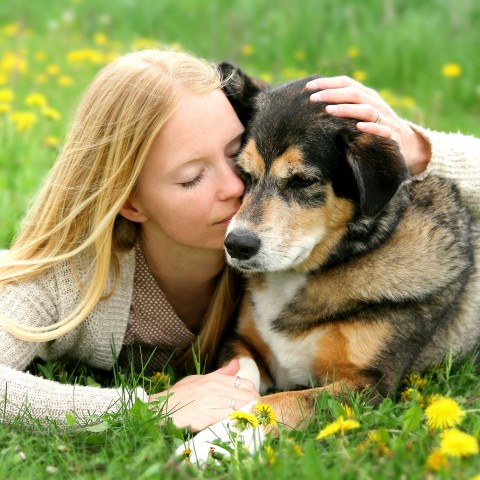Hungarian is a difficult language to learn, but we at the HungarianPod101.com family wholeheartedly believe that it’s worth the struggle. Learning to speak a difficult language not only enriches your personality, but also serves as a fantastic way to exercise your brain. And learning self-introductions in particular is a vital step in forming lasting relationships with the Hungarian people, which is why when you learn Hungarian, introducing yourself is one of the first topics you should cover.
Hungarians are sociable people who enjoy being around others, but they do like to keep a healthy distance. They’re open and honest, but don’t like to overshare. They enjoy getting to know new people, but don’t like it if someone’s too much or too pushy.
So, how to introduce yourself in Hungarian? Read this blog post to find out all about introducing yourself in Hungarian phrases! I’ll go over how to introduce yourself (English to Hungarian), and more information on introducing yourself when in Hungary! Introducing yourself when studying Hungarian doesn’t have to be hard.
Table of Contents
- Start with Your Name!
- Note Where You Come From
- Only Tell Your Age if You’re Comfortable Sharing it
- “How are You?” in Hungarian
- Putting it All Together: The Best Lines to Introduce Yourself in Hungarian
- Talking about School or Your Profession
- Talking about Your Family in Hungarian
- “My Hobbies are,” in Hungarian
- “I Have a Pet,” in Hungarian
- That Little Extra: Body Language
- How to Introduce People in Hungarian
- Conclusion: How HungarianPod101.com Can Help You Master Hungarian
1. Start with Your Name!
When it comes to learning Hungarian for beginners, how to introduce yourself is of utmost importance. And luckily, it’s not too hard!
Wondering how to start a conversation in Hungarian? Whenever you meet a Hungarian after you’ve said hello, they’ll most likely start off by telling you their name. Hungarians put a huge emphasis on knowing each other’s names—forgetting the name of someone you recently met is considered extremely rude.
1- “My Name is,” in Hungarian
When it comes to how to speak Hungarian when introducing yourself, starting with your name is pretty simple. So how do you say “My name is,” in Hungarian? There are basically two options for talking about your name in Hungarian:
- A nevem Vivien.
“My name is Vivien.” - Viviennek hívnak.
“I’m called Vivien.”
The first example is pretty straightforward, with A nevem translating to “My name is,” in English, followed by your name. But if you’re new to Hungarian, the second phrase may look a little more complicated. Here’s a simple breakdown:
The word hívnak translates to “call,” but when the word nek is added in front of it (nek hívnak), it becomes “are called.” So to say “I’m called ___,” you would put your name at the beginning of the word nek, and follow it with hívnak.
Feel free to go with either of these options; there’s basically no difference between them.
2- Nicknames in Hungarian
Do you have a nickname? Hungarians usually have nicknames. They mostly use them in informal environments. Feel free to tell someone your nickname right at the beginning of a conversation:
- Hívj csak Vivinek.
“Just call me Vivi.”
In this example, “Just call me…” translates to hívj csak, and adding a -nek turns it into a possessive form.
Giving your nickname is widely accepted in this culture, so don’t be shy to share it!
3- “What’s Your Name?” in Hungarian
After sharing your name, it’s super important to ask for their name too. Knowing each other’s names is extremely important in Hungarian culture. Asking someone’s name is easy:
- Hogy hívnak?
“What’s your name?”
“What’s” translates to Hogy, whereas hívnak translates to “are called.” So essentially, you’re asking what they are called.
When you’re in a formal environment, you could say:
- Megkérdezhetem a nevét?
“May I ask your name?”
Megkérdezhetem is a polite form of asking something, and translates to “May I ask.” And “‘your name” is a nevét.
Make sure to pay attention and remember the name of the person you’ve just met. A good trick is to continue the conversation by repeating their name:
- Örülök, hogy megismerhetlek, Vivi!
“Nice to meet you, Vivi!”
Örülök means “happy,” and hogy megismerhetlek translates to “to meet you.” Thus, Örülök, hogy megismerhetlek literally translates to “I’m happy to meet you,” in English.
Or you can say the following in a formal environment:
- Örülök, hogy megismerhetem, Vivien!
“Nice to meet you, Vivien.”
Hungarians have a formal form of each word, called magázódás. Thus, “to meet you” is always the same in English, whereas in Hungarian, the informal form is megismerhetlek and the formal form is megismerhetem.
4- What if You’ve Forgotten Someone’s Name?
While you learn Hungarian, how to introduce yourself isn’t too tricky. But it might still happen that you can’t recall the name of the person you’re talking to. In these cases, simply ask:
- Ne haragudj, mi is a keresztneved?
“Sorry, what’s your name again?”
Ne haragudj translates to “sorry,” whereas mi is makes up the “again” part of the sentence.
2. Note Where You Come From
The second most important thing to remember when introducing yourself in Hungarian is letting the other person know where we come from.
1- “I Come From,” in Hungarian
Tell the other person where you’re from the following way:
- Kínából jöttem.
“I come from China.” - Amerikából jöttem.
“I come from America.” - Horvátországból jöttem.
“I come from Croatia.”
Jövök means “I come,” though Hungarians say it in past tense, as jöttem. To add “from,” they add -ból after the country name.
Fancy learning some country names in Hungarian? Visit our country vocabulary list and make the introduction easier!
3. Only Tell Your Age if You’re Comfortable Sharing it
As stated at the beginning of this article, Hungarian people are reserved and don’t like to overshare stuff about themselves. Thus, age is considered an intimate topic in Hungarian culture. While learning how to introduce yourself in Hungarian language, make sure to only share your age if you’re comfortable with it, and only ask about someone’s age if you’re sure they won’t take it personally.
Talking about your age in Hungarian is super-easy, and there’s only one way to do so:
- 23 éves vagyok.
“I’m twenty-three years old.”
“I am” translates to vagyok, and “years old” translates to éves in this sentence.
Asking about someone’s age is simple as well:
- Hány éves vagy?
“How old are you?”
In a formal environment, it’s a bit different:
- Megkérdezhetem, hogy mennyi idős?
“May I ask how old you are?”
When using the formal form, you skip vagy, and simply ask mennyi idős, which is a more polite form of hány éves.
4. “How are You?” in Hungarian
Now you might wonder: Why didn’t we mention “How are you?” in Hungarian before now? That’s because Hungarians simply don’t ask this question as often as foreigners do. They only use this question in informal environments (for example, when chatting with friends or relatives).
- Hogy vagy?
“How are you?”
“How” translates to hogy, and “are you” translates to vagy.
When you’re in a formal environment, you could say:
- Hogy van?
“How are you?”
In a formal environment, instead of vagy, we use van, which is simply the formal form of vagy.
5. Putting it All Together: The Best Lines to Introduce Yourself in Hungarian
Now that you know the basics, I’ll go over the best lines to introduce yourself in Hungarian. When it comes to the Hungarian language, it’s important to note that there’s a significant difference between formal and informal introductions. Let’s see how they differ.
1- Informal Introduction in Hungarian
The informal introduction is the easiest, as there are no strict rules here. You can welcome someone informally in many ways, such as:
- Helló!
“Hello!” - Szia! or Cső
“Hi!”
Then you can continue by stating your name, age, and nationality.
- Vivinek hívnak, 23 éves vagyok és Indonéziából jöttem.
“My name is Vivi, I’m twenty-three years old, and I come from Indonesia.”
This is easy, but when you want to be a bit more formal, you need to use more polite expressions.
2- Introducing Yourself Formally in Hungarian
When introducing yourself formally in Hungarian, you want to ensure that you welcome the other person in a very polite way, such as:
- Jó reggelt / napot / estét!
“Good morning / afternoon / evening!” - Üdvözlöm!
“Greetings!”
Then you want to emphasize how glad you are to meet the person:
- Örülök, hogy megismerhetem!
“Nice to meet you!”
And only after that can you proceed to introduce yourself. This part is the same as it was with the informal introduction.
- Vivien vagyok, 23 éves és Indonéziából származom.
“My name is Vivi, I’m twenty-three years old, and I come from Indonesia.”
You successfully introduced yourself, but how should you continue the conversation? You’ve now shared the most important facts about yourself, but there’s still a lot to tell.
Hungarians are very reserved and only like to share things they’re entirely comfortable sharing with others. Thus, make sure you don’t share too much about yourself; otherwise, your chat partner might feel intimidated. Instead, outline the most important things in your life.
6. Talking about School or Your Profession
Whether or not you’re studying is very significant in Hungary. Thus, you might want to continue by stating:
- Még iskolába járok.
“I’m still studying.”
“Still” translates to Még, whereas “I’m studying” translates to iskolába járok.
- Már dolgozom.
“I’m working already.”
“Already” translates to Már, whereas “I’m working” translates to dolgozom.
In Hungarian, tanulok means “I learn.” To tell someone what you’re studying, you put the Hungarian word for that topic in front of tanulok. To share what your major is, here’s a short list of the most common ones:
- Közgazdaságtant tanulok.
“I’m studying economics.” - Mérnöknek tanulok.
“I’m studying engineering.” - Jogásznak tanulok.
“I’m studying to become a lawyer.” - Pszihológiát tanulok.
“I’m studying psychology.”
To talk about your profession, check out our list of twenty common occupations in this language. Then, tell your profession as follows:
- Fodrász vagyok.
“I’m working as a hairdresser.”
Dolgozom means “I’m working,” and “as a” translates to -ként, thus word-by-word, this sentence is Fodrászként dolgozom in Hungarian. But to make it short and simple, they say Fodrász vagyok, or “I’m a hairdresser.”
- Pincér vagyok.
“I’m working as a bartender.” - Diák vagyok.
“I’m a student.”
7. Talking about Your Family in Hungarian
When it comes to personal details, it’s important to keep in mind the previously mentioned rule. Stay cool, and don’t overshare.
We know how hard it is to gather all those family-related words for a proper introduction, so we created a short and sweet list of the must-know terms for describing family members. Some family-related sentence examples include:
- Házas vagyok.
“I’m married.” - Kettő gyermekem van.
“I have two children.” - For more numbers in Hungarian, check our number vocabulary list!
Kettő means “Two,” gyermek means “children,” and to note that they’re yours, you add -em which forms gyermekem.
- Kettő testvérem van.
“I have two siblings.”
Now that you’ve shared some info about your loved ones, you can move onto talking about your hobbies.
8. “My Hobbies are,” in Hungarian
Talking about your hobbies in Hungarian is very simple:
- A hobbim…
“My hobby is…”
What’s your hobby? Do you enjoy playing the guitar? Maybe drawing? Check out our list of hobbies to know how to say your favorite past-time activity in Hungarian.
9. “I Have a Pet,” in Hungarian
Hungarian people love animals and they enjoy talking about them. Make sure to bring up this topic if you have a pet. Talking about your pets in Hungarian is sweet and simple:
- Van egy kisállatom.
“I have a pet.”
It’s best to tell what kind of pet you have, and for this, we’ve prepared a vocabulary list to help your learning process. Check our animal vocabulary list and enjoy talking about your pets!
10. That Little Extra: Body Language
Now that you know what makes a good Hungarian introduction, it’s time to talk about body language. Hungarian people don’t give too much importance to body language, but there are still some things you might want to consider.
- It’s important to maintain eye contact while talking to someone, otherwise, you might seem dishonest.
- Putting your hands on your hips might be considered rude in some cases; it suggests violence.
- Tucking your thumbs into the belt or into the pockets is sometimes considered an act of cockiness.
11. How to Introduce People in Hungarian
There’s only one thing we haven’t mentioned yet: How to introduce people in Hungarian. What if you’re with a friend and you want to introduce them? This may be the simplest sentence of all in this article:
- Ő Adam.
“His name is Adam.”
“His name” translates to Az ő neve, and the whole sentence is Az ő neve Ada in Hungarian. However, to keep it short, you just skip az and neve, and just say, Ő Adam.
- Ő a barátom, Adam.
“This is my friend, Adam.”
When you’re in a formal environment, you could say:
- Be szeretném mutatni Adamot.
“I would like to introduce Adam.”
“I would like to” means szeretném, and “to introduce” means bemutatni. However, be- is a preverb, and we use it separately from mutatni, as in Be szeretném mutatni.
12. Conclusion: How HungarianPod101.com Can Help You Master Hungarian
Have we answered your question of “How do I give an introduction of myself in Hungarian?” Do you feel more confident about how to introduce yourself, Hungarian to English?
When introducing yourself in this language, it’s essential to start with your name, share your nationality, describe your profession, and talk about your hobbies. Learning how to introduce yourself in Hungarian is the first step to mastering the language. It might seem complicated at first, but steady practice will get you nice results.
If you fancy getting help, don’t hesitate to join the HungarianPod101 family. In the meantime, also follow our YouTube channel for free educational videos, or check out our Hungarian lessons “Introduce Yourself” for additional info on this topic.
To practice what you’ve learned in this article, write us a quick introductory paragraph about yourself in Hungarian! We’d love to hear from you!


















